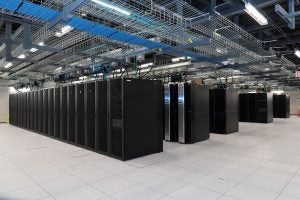 April 17, 2024
by John Powers
Chemicals
Regulations
Water
April 17, 2024
by John Powers
Chemicals
Regulations
Water
EPA has been working quickly to regulate PFAS across the United States. The National Primary Drinking Water Regulation for PFAS is now finalized, and more final rules are right around the corner.
 April 17, 2024
by Jesse Valente
Climate change
Sustainability
April 17, 2024
by Jesse Valente
Climate change
Sustainability
Over the past few years, the SEC has been driven by its focus on climate and a crypto crackdown. This article explores where these two priorities may conflict.
 April 12, 2024
by Christopher Slama
Air
Chemicals
Climate change
Regulations
April 12, 2024
by Christopher Slama
Air
Chemicals
Climate change
Regulations
Late last year, the EPA issued a formal Endangerment Finding, the first step in almost thirty years toward reducing the largest source of lead in the atmosphere. What took so long?
 April 9, 2024
by Andrew Lloyd Bellah
Climate change
Regulations
April 9, 2024
by Andrew Lloyd Bellah
Climate change
Regulations
The Board of Governors of the Federal Reserve System published new changes to Regulation HH pertaining to systemically-important Financial Market Utilities (FMUs) that clear and settle large-scale transactions between banks and other financial institutions in the United States. In this blog post, GELR Senior Editor Andrew Bellah highlights new operational risk management requirements for FMUs in Regulation HH that have become relevant due to emergent threats arising from climate change. While the amendments to Regulation HH don't explicitly mention climate change, their emphasis on the risk of severe weather and other tail-end scenarios denotes the seriousness of preparing critical financial market infrastructure for a warming world.
 April 8, 2024
by Jack Hatzimemos
Air
Regulations
State and Local
April 8, 2024
by Jack Hatzimemos
Air
Regulations
State and Local
After years of years of roadblocks and anticipation, New York City is scheduled to introduce its controversial Congestion Pricing toll in June. The congestion toll, which will charge drivers of standard vehicles $15 to enter parts of lower Manhattan, aims to reduce traffic build up and air pollution in the city. However, the toll has been met with tremendous scrutiny, particularly on the true environmental impact of the project.
 April 4, 2024
by Can Cao
Climate change
Energy
International
Natural Resources
Oil and Gas
Renewable Energy
April 4, 2024
by Can Cao
Climate change
Energy
International
Natural Resources
Oil and Gas
Renewable Energy
This article explores the Middle East's shift away from oil dependence towards renewable energies, highlighting how this energy transition has resulted in regional collaboration, economic diversification, and global implications.
 April 2, 2024
by Aidan Bassett
Energy
Renewable Energy
April 2, 2024
by Aidan Bassett
Energy
Renewable Energy
To deploy renewables and meet its climate targets, the U.S. will need new transmission and grid-enhancing technologies to get the most from its existing power infrastructure.
 March 25, 2024
by Alexis Gorfine
Climate change
State and Local
Sustainability
March 25, 2024
by Alexis Gorfine
Climate change
State and Local
Sustainability
The healthiest and happiest communities are walkable, bikeable, and provide equitable transportation options for all. D.C. policymakers must put cars in their place and take steps to promote pedestrian safety. By slowing down drivers, improving infrastructure to promote pedestrian awareness, and encouraging mass transit alternatives, we can make our city more friendly to both the environment and its habitants, workers, and visitors.
 March 21, 2024
by Stefan Koester
Energy
Regulations
Renewable Energy
Sustainability
March 21, 2024
by Stefan Koester
Energy
Regulations
Renewable Energy
Sustainability
IRS comment period for the 45V clean hydrogen tax credit guidance closed on February 26, 2024. This credit provides a tiered production tax credit for clean hydrogen depending on its emissions intensity. The draft guidance relies on three pillars to ensure emissions integrity – additionality, temporal and geographic matching. Judging by some comment responses, controversial reactions to each of these pillars were significant, with many commenters suggesting that the courts will have the final say on how these tax credits will be finalized. Will all this uncertainty derail the clean hydrogen economy?
 March 21, 2024
by Damon Hays
Agriculture
Climate change
Natural Resources
Regulations
Renewable Energy
Sustainability
March 21, 2024
by Damon Hays
Agriculture
Climate change
Natural Resources
Regulations
Renewable Energy
Sustainability
The current impasse over the nation's premier agriculture legislation is one that reflects the competing interests of modern food production practices and climate change mitigation efforts.










